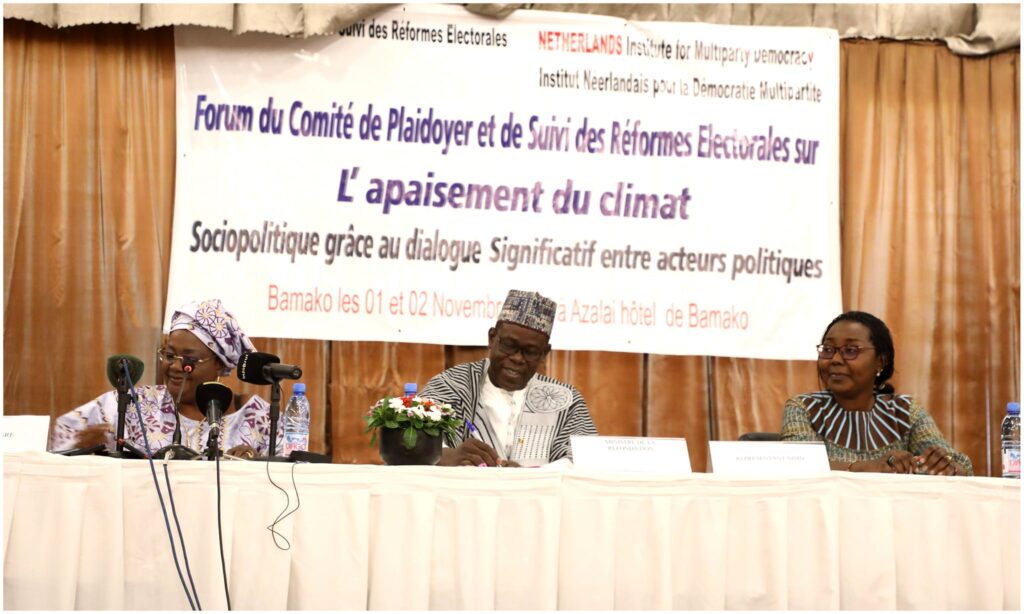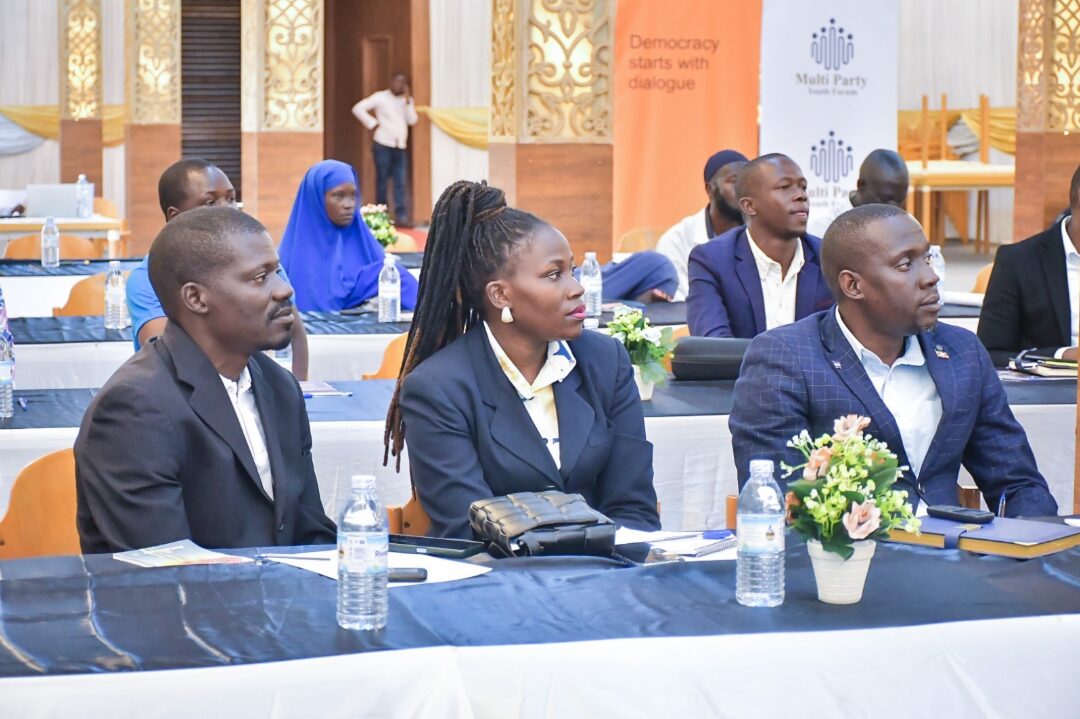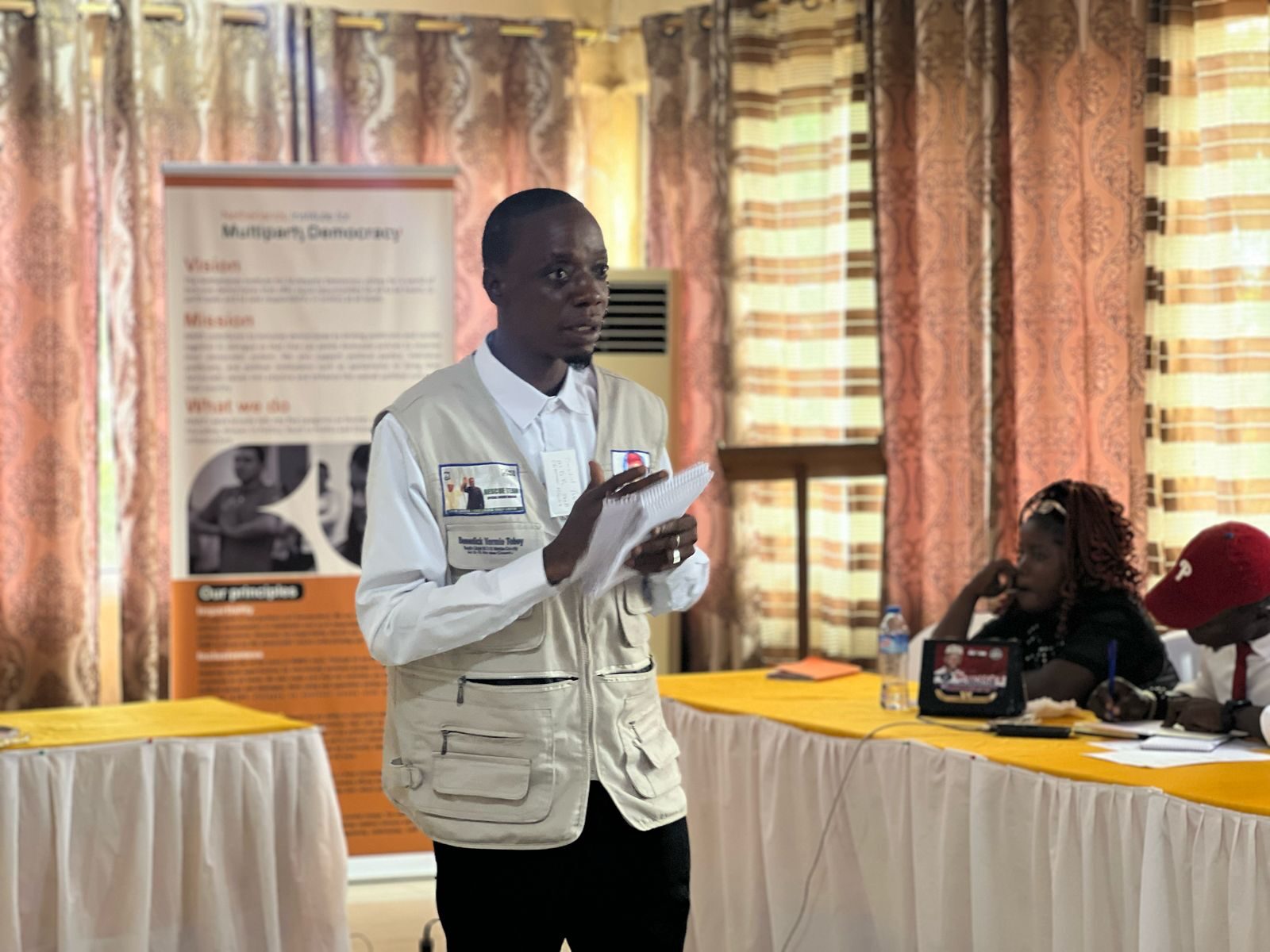International Day of Democracy: Towards trust and inclusiveness in Mali

A transition to democracy is a delicate process with competing interests and expectations. Investing in building trust and establishing commonalities between different political actors – and between the state and its citizens – is crucial if this process is to have a chance of success. It creates stability and gives people hope that they can actually build a better life for themselves in their own country.
NIMD in Mali works on multiple levels, namely dialogue and education, to try to build these bonds of trust as Mali moves from a 2021 coup towards elections scheduled for 2024. Working in volatile environments – the country also faces a jihadist insurgency – means inevitable setbacks and challenges, but NIMD understands that it takes time and commitment to make a lasting shift towards peace and stability.
Forging trust and advocating for inclusive reform
Having been active in the country since 2002, NIMD had already laid the groundwork for collaboration, helping establish a cross-party electoral reform advisory board, the Comité de Plaidoyer et de Suivi des Réformes Électorales (CPSRE), in 2019. The committee is made up of 24 influential individuals from political parties, civil society, and academia.
This meant, when political turmoil arrived, there was already a framework for collaboration.
In 2022, the CPSRE worked with the authorities to ensure that the upcoming electoral law reform would increase inclusivity in the Malian political landscape and instil democratic values. The new electoral bill, adopted by the National Transition Council in June, contained three recommendations from the CPSRE, including the creation of an independent electoral management body in Mali.
There was also renewed focus on developing a new constitution, a contentious process that divides opinion, with many groups opposed to the new charter and much discord over its contents.
To help the opposing sides find common ground, NIMD and the CPSRE organized dialogue sessions between political parties, traditional and religious groups, and the authorities.
“The committee is working with different groups to try and find where there are blocks and red lines in the communication, but also convergences where they can work towards consensus,” says Célia D’Almeida, Country Director for NIMD Mali. “While there were disagreements, simply getting different parties in the room to talk and find some areas of agreement was an achievement.”
Connecting political actors and the population
NIMD Mali is used to forging links between political players and citizens. For the past two years, the organization has been gathering citizens’ views on democratic transition through innovative online and face-to-face forums across the country. More than 20,000 people have taken part in consultations in every region of the country.
This effort is continuing with Popular Assemblies, meetings which are being held since mid 2023 to prepare the country for upcoming elections. The sessions focus on the role that parties should play in Mali’s democratic system, and how the electoral process should lay the foundation for lasting stability in Mali. The elections present an historic occasion for renewal of the political class.

